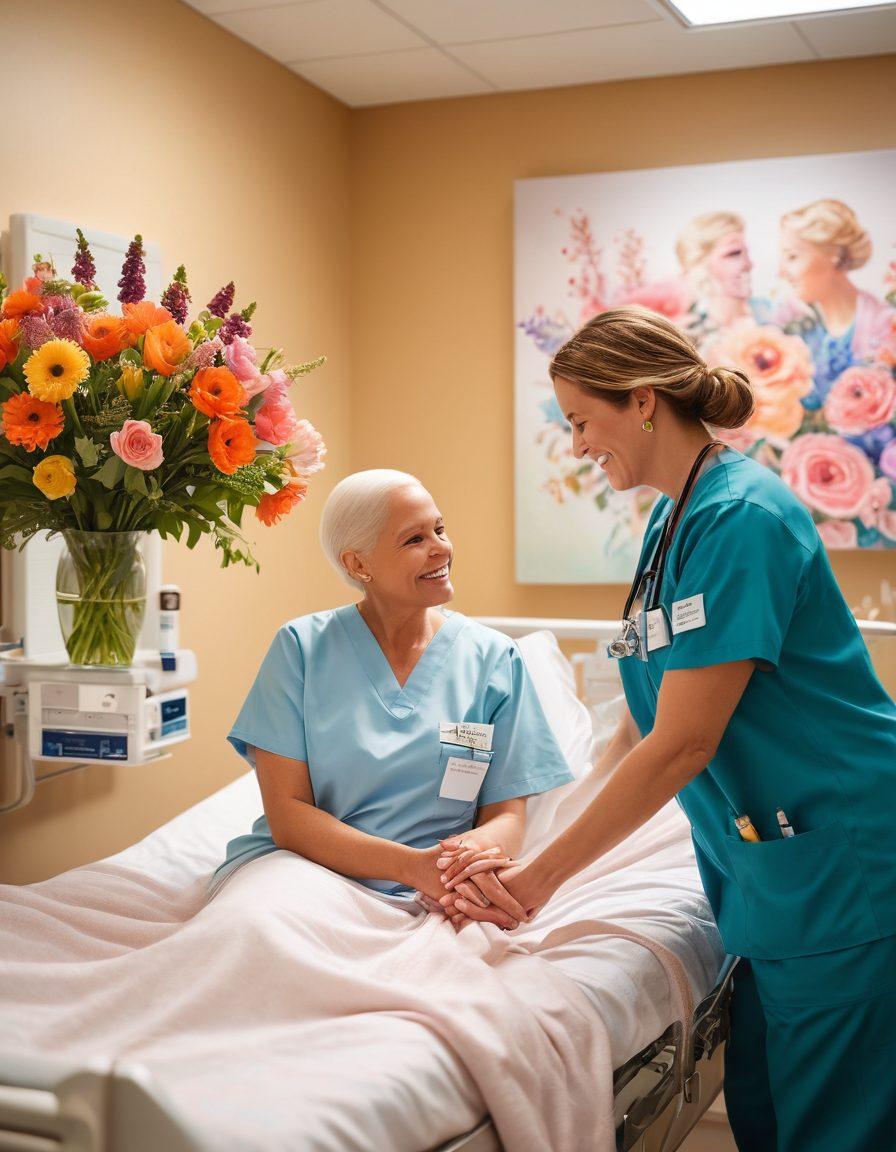Empowering Cancer Patients: Essential Tips for Cancer Care and Advocacy
Navigating the complex world of oncology can often feel like traversing a labyrinth filled with various treatment options, emotional upheavals, and unknown outcomes. For many cancer patients, understanding their journey is as critical as the medical advice they receive. It’s all about empowerment—equipping oneself with the right tools and resources to make informed decisions about cancer care. It begs the question, how can patients not just survive but thrive in their fight against malignancy?
To embark on this journey, it’s essential to grasp the importance of patient education. Knowledge is power! By understanding their diagnosis, whether it’s a particular tumor type or a stage of the malignancy, patients can become active participants in their treatment plans. One powerful stat comes to mind: patients who engage in their care are more likely to have positive outcomes. So, how can you level up your own knowledge? Dive into the latest research, seek out reputable health blogs, and don’t hesitate to ask doctors about therapeutic options, clinical trials, and alternative treatments. Your health is a collaborative effort between you and your care team.
Emotional support is another pillar of patient empowerment. The cancer journey can be laden with emotional turmoil, but you’re not alone. Support groups can be a beacon of hope, providing not just companionship, but also a space to share experiences and coping strategies. Additionally, consider integrating lifestyle changes tailored for well-being, such as improved nutrition and physical activity. Research emphasizes the positive impact of these changes on survivorship. Have you ever wondered how a simple shift in diet could boost your mood or energy levels? The answers might surprise you!
As we explore these strategies, it's vital to remember that advocacy plays a pivotal role. Joining organizations focused on cancer advocacy can amplify your voice not just as a patient but also as a champion for others. From participating in awareness campaigns to engaging in discussions about cancer prevention, you become part of a larger community looking to advance health resources and policies. Are you ready to become an advocate for change?
Ultimately, navigating oncology isn’t solely about the treatments one undergoes; it’s about the holistic approach to health and recovery. Incorporate emotional support, patient education, and lifestyle changes into your routine for a balanced approach to cancer care. Stay informed about clinical trials that may offer access to cutting-edge treatments and alternative therapies. The journey may be challenging, but with the right strategies and a supportive network, empowerment is within your reach. So, as you continue to navigate this journey, hold on to this powerful quote: 'Courage doesn’t always roar; sometimes, it’s the quiet voice at the end of the day saying, I will try again tomorrow.' Let this be your guiding light on the path to well-being and recovery.
From Tumor to Triumph: Advocating for Your Cancer Care Journey
Imagine standing at the edge of an abyss, staring down at the depths of uncertainty and fear. That’s often what it feels like for cancer patients upon receiving their diagnosis. However, in this daunting journey from tumor to triumph, understanding cancer care becomes your guiding light. One of the fundamental aspects of being a patient is becoming your own best advocate. Engaging in cancer advocacy can transform not only your experience but also set an example for others facing similar battles. So, how do you turn your experience into empowerment? Let's explore some essential strategies to advocate for your cancer care journey.
First and foremost, knowledge is power. In the realm of oncology, the wealth of information available can be both a blessing and a curse. With cancers evolving and new research popping up every day, it's crucial to be informed about your malignancy type, treatment options, and ways to improve your well-being. Attend educational sessions, read reputable health blogs, and participate in support groups. These resources will not only enhance your understanding but will also provide emotional support and practical health tips to guide you and your family through this turbulent time. As the saying goes, "An informed patient is a powerful patient!"
It’s equally important to engage with your healthcare team actively. Doctors and nurses are there to provide medical advice, but bringing your questions to the table shows that you are an integral part of your care team. Don't hesitate to ask about alternative treatments or clinical trials; inquire about the latest research in oncology that could be beneficial for your treatment. Building a collaborative relationship with your medical team fosters trust and transparency, making it easier to navigate the complexities of cancer care. Imagine your doctor as a partner in this journey, and together you can explore therapeutic options tailored specifically for you.
A solid support system plays a pivotal role in cancer survivorship. Leaning on family and friends can provide that much-needed emotional support. Additionally, don't underestimate the power of support groups filled with individuals who truly understand your journey. Share experiences, swap strategies, and foster bonds that can uplift one another during difficult times. The idea of sharing both your fears and triumphs can create a safe space where healing begins. It is in these moments of vulnerability that connections deepen, reminding us we are never alone in our battles and that together, we are stronger.
Finally, it’s vital to incorporate lifestyle changes that promote overall health and wellness. Whether it's adjusting your diet, infusing exercise into your daily routine, or even practicing mindfulness, these changes can significantly affect your treatment outcomes. Regularly consult health resources and seek professional advice to tailor your approach. Remember, advocacy doesn’t just mean fighting for your rights within the healthcare system; it also means advocating for your own health through proactive lifestyle choices. So, what small changes can you make today to be an advocate for your health and journey toward recovery? Your pathway from tumor to triumph begins here, filled with unwavering hope and determination.
Transforming Malignancy into Hope: The Role of Advocacy and Wellness in Cancer Survivorship
In the face of malignancy, the path may be shrouded in uncertainty, but every cancer patient holds a unique power—the power to advocate for their own health. Imagine standing at the precipice of a daunting diagnosis, informed and ready to charge into the fray. That's the essence of cancer advocacy and survivorship—transforming the narrative from fear to hope. Whether you are a patient or a caregiver, you have the ability to influence the outcome of cancer care.
When we talk about cancer, the word itself can evoke a spectrum of emotions—from despair to determination. But how often do we emphasize the need for emotional support and community in this fight? As Dr. Goodall once said, 'What you do makes a difference, and you have to decide what kind of difference you want to make.' That's the heart of cancer advocacy! From participating in support groups to utilizing health resources for patient education, individuals can become their own best advocates, turning the tide against malignancy.
Latest research indicates that survivorship is not simply about the absence of a tumor; rather, it encompasses a holistic approach to health and wellness. This might involve incorporating lifestyle changes that promote overall well-being, like nutrition and exercise, beyond traditional cancer care. How does incorporating alternative treatments or exploring therapeutic options fit into this narrative? It’s about building a personalized approach. Every step one takes towards well-being can bolster physical health and foster resilience against the looming shadows of cancer.
Furthermore, an informed patient is a powerful patient. Engaging in discussions about clinical trials, alternative treatments, and cancer prevention plays a crucial role in shaping individual treatment plans. Picture this: attending an oncology appointment equipped with insightful questions and a comprehensive understanding of medical advice. Wouldn’t that shift the dynamics of the conversation? By turning knowledge into action, patients can ensure they are receiving the most effective treatments tailored to their unique situation.
Lastly, remember that the journey through cancer treatment need not be solitary. By connecting with others who share similar experiences and triumphs, individuals can weave a tapestry of shared hope and encouragement. Much like a phoenix rising from the ashes, survivors can embolden others to navigate their paths. Engaging in health blogs or seeking out local support groups helps foster an atmosphere where the discussions are rich, the hearts are open, and the advice is invaluable. It's a beautiful reminder that together, we can transform malignancy into hope.


